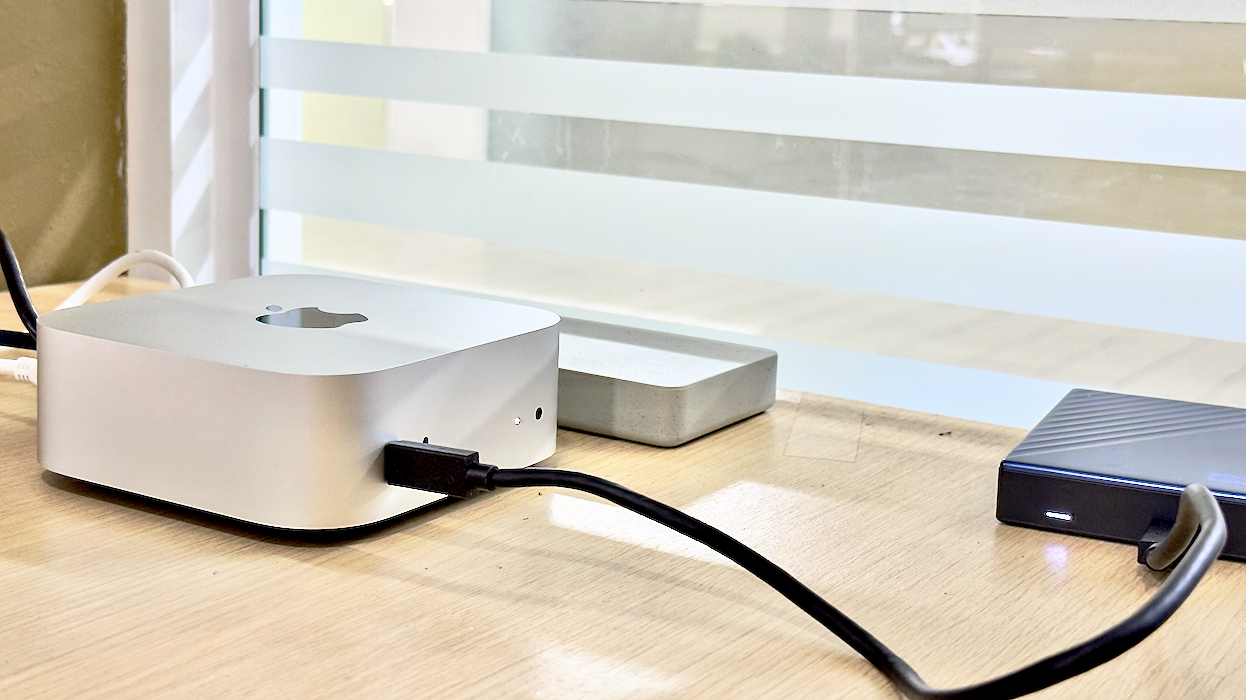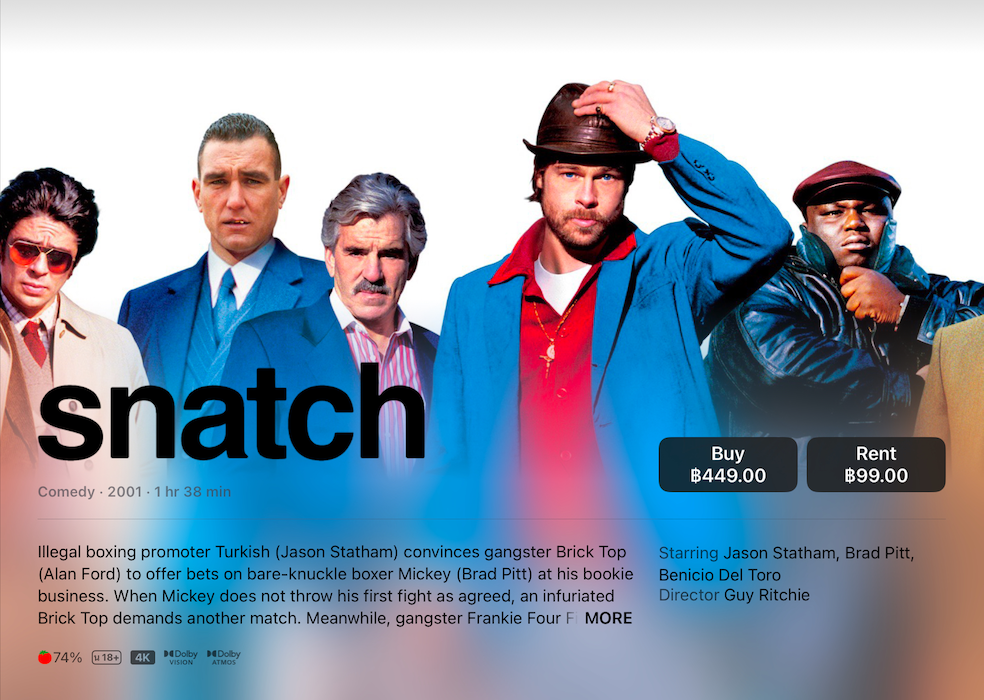
eXtensions - Friday 24 January 2025
By Graham K. Rogers

Questions on the right to repair regarding smartphones, tractors and medical equipment: levels of equipment integrity and costs. With a soon-to-arrive update to iOS and other OS versions, AI will also see some changes. I have found some good TV online recently as well as some interesting movies, and I am looking forward to new arrivals, including a documentary from Apple on Vietnam.
One of the sites I refer to often is iFixit, mainly for their tear-downs of Apple products soon after they arrive, and their comments. They have often been critical of the repairability of these products (and others). They also support the Right to Repair movement. While Apple has made some concessions, it is often claimed that unauthorized repairs may leave the device in a state which is less than perfect, causing risk to the user. There is a point to this as we have seen with bad battery replacements that have cause iPhones to catch fire. Apple is usually blamed for this, until the devices are stripped down and forensically examined. One, for example, had a screw replaced incorrectly, causing a short circuit, then a fire. As this happened on a flight, there could have been serious risk to passengers had the crew not acted promptly.

An article this week from Jason Koebler (404 Media) looks at the actions of Terumo, a maker of high quality medical devices. The company has in the past trained technicians employed by hospitals to fix their products, but has now ended this and has levied charges for the maintenance and repair. My first thought, was John Deere: maker of farm equipment. This company does not allow any repairs of its products, except by authorized technicians (with suitably high charges). This was mentioned later in the article.

The problem with the approach is that it may take days for an authorized person to arrive on site: delaying operations in the one case; or causing the loss of crops in the other. A problem with both is cost; and health costs in the USA are already significantly high.
Koebler looks at the argument: right to repair, machine integrity, current technical skills, patient safety, and rising health costs. He notes the comment of a source familiar with Terumo device repair, "Just because a guy has Terumo on his shirt doesn't mean he's a more competent technician" than an in-house hospital technician". The same may well be true for a John Deere mechanic or some smartphone repair shops, but some of the equipment used in hospitals these days, such as the MRI, is so specialized that I would like to think that - should it need repair - a qualified technician was doing the job.

In a never-ending series of anniversaries (41 years for the 1984 Apple commercial by Ridley Scott) it is notable that this week also sees a more relevant 20 years anniversary for the original Mac mini (Hartley Charlton, MacRumors). He also reminds us that this is the 40th anniversary of the LaserWriter which was also significant (Hartley Charlton). Related to this Luke Dormehl (Cult of Mac) reports on the arrival of Apple Office and, particularly, the pre-WiFi AppleTalk that allowed networking of computers and printers in an office.
I have had several Mac mini computers: on test and owned. I find they last a long time, with no fuss attached. They just keep going. I recently updated my M1 Mac mini to the M4 when it arrived here. I gave the M1 Mac mini to a colleague who had been using her old Intel version for over 10 years, problem-free, although she was unable to install the latest versions of MacOS. The M1 Mac mini fixed that.

Charlton writes that these were "originally designed as a gateway for users to enter the Apple ecosystem" for a relatively cheap price. There have been more powerful versions, for example the latest M4 which has a basic set of features as well as the version with the more powerful M4 Pro chip. During the last 20 years the Mac mini has been used as a server, and thousands of them are in colocation facilities or data centers.
 The next update to iOS and the other operating systems will have some changes with regard to AI. The information I have seen from various sources, such as Emma Roth (The Verge) tell us that with iOS 18.3 Apple Intelligence will be turned on by default on those devices it will work on (like my iPhone 15 Pro). What this does not tell us is if this applies to all countries: even those in which Apple Intelligence has not previously been available, such as Thailand.
The next update to iOS and the other operating systems will have some changes with regard to AI. The information I have seen from various sources, such as Emma Roth (The Verge) tell us that with iOS 18.3 Apple Intelligence will be turned on by default on those devices it will work on (like my iPhone 15 Pro). What this does not tell us is if this applies to all countries: even those in which Apple Intelligence has not previously been available, such as Thailand.
This change is also noted by Ryan Christoffel (9to5Mac) who confirms that it will be on by default, but it is not clear whether it will apply in all countries. Joe Rossignol (MacRumors) suggests that the upgrade will be released to users next week, in time for the Q1 2025 financial figures.
I have my doubts on Apple Intelligence (and on AI in general). I use it because I want to see how it works. And how it doesn't. I changed my settings to US English to allow this when it was first available. It is now available for other English types (UK), but this may not apply to certain languages or countries. That has not been clarified.
However, Juli Clover (MacRumors) includes information about the full release notes, including, "Some features may not be available for all regions or on all Apple devices. For information on the security content of Apple software updates. . ." which appears to indicate that not all countries will be included.
On Netflix this week I found an older gem from 2007, directed by David Cronenburg: Eastern Promises. I was inspired to find this when I saw a scene on YouTube between Viggo Mortensen and Naomi Watts, who was riding a Ural motorcycle. It is a fairly violent movie about Russian gangs in London, with Mortensen playing a chauffeur to the family, run by Armin Mueller-Stahl (an old favourite). There is more to the chauffeur than just driving cars. Look out for the knife fight in a sauna between a naked Mortensen and a pair of Chechen gangsters out for revenge.
On a similar theme of finding clips on social media, I also saw this week on Facebook a selection of scenes featuring Alan Ford (Brick Top) in the Guy Ritchie movie, Snatch, which also has Jason Statham and an unusual performance by Brad Pitt. Although this followed Lock, Stock and Two Smoking Barrels, I think that Snatch is the better movie.

There are a couple of new releases on Netflix that I am also looking forward to: Series 2 of The Recruit on 30 January; and The Night Agent, Series 2 this week. Each has a different approach to security work. Series 1 of The Recruit was more humorous, while the Night Agent had a far more serious take on protection: of people and the Constitution. Jack Seale (Guardian) writes that "this thrilling spy drama is like Homeland all over again" and is enthusiastic in his other comments, noting that some scenes in episode 1 take place in Bangkok. He adds that this is "endearingly unpretentious and focused purely on a narrative that has no frills, but no fat on it either."
Because I know the areas in Bangkok that were shown in episode 1, I found it a little confusing when the characters switched locations that were quite distant. For example, in one scene set in Soi Cowboy, they were in Sathorn Road in seconds, while making their way to a park that was quite distant. I sort of ignored that as it moved on; and the end of episode 2 gave me quick a start. Unexpected. The first two episodes feel a bit strained when compared to Series 1. Also near the top of my Netflix list is Back in Action (Jamie Foxx and Cameron Diaz which seems to have a similar premise as the Mark Wahlberg movie on Apple TV: The Family Plan. I find this a fun movie and have watched it 2 or 3 times now. In both, agents whose families had been unaware of their jobs, are accidentally returned to the action.
This week on AppleTV, Prime Target made its debut and was a little more than I expected, in a good way. I had planned to watch just one episode, but the ending of the first one was so riveting that I stayed up and watched 1 & 2. The end of episode 2 was equally drawing. Although series 2 of Severance is now available, I am holding off on that so I can have a long run at the whole series. As good as many people regard this, I am uncomfortable with the whole idea of one person with two separate lives - so separate they don't even know. It is, however, executed well.
My teens were saturated by news coverage of Vietnam, even in the UK. It, and the protests it engendered were a feature of the 1960s-70s. To some it was a holdover of colonialism. The French, unwilling to let go of Indochina after WW2, were soundly beaten by the communist forces and the country split into two, with Ho Chi Minh in control in the North and a series of corrupt governments in the south shored up by the USA. Because of the theory of the Domino Effect - if all of Vietnam fell to Communism the rest of South-east Asia would fall - the USA (and others) saw it as a last ditch conflict. As we now know, it was unwinnable: the industrial-military complex is not unstoppable. The Domino Effect was disproven when the USA finally gave up and extricated itself.
Vietnam was above all a political war. The soldiers who fought, did what soldiers always do in wartime: fight, are injured and some die. Some come home and are changed forever. Many of those on both sides were drafted into the war. In the end, most of these disputes are settled in comfortable surroundings by well-dressed politicians such as the now somewhat-dicredited Henry Kissinger. There have been a host of good movies from that era, and some that were questionable, but a new documentary - Vietnam: The War That Changed America - from Apple, airing on 31 January, perhaps has a new look. There is some previously unseen footage, as well as some interviews with former Vietcong fighters. The documentary makers have managed to identify some of the military shown in the footage and have tracked them down making some novel input. The trailer is available on AppleTV now and worth a look. I also saw some useful comments from David Snow (Cult of Mac) and Patently Apple.
In my notes last week I wrote about the new MotoGP season and checking about the renewal date for my subscription. A couple of days later, an email reminder arrived and I saw mention of the credit card. That has been updated, so the email nudged me to check this. However, when I tried to update the information - three times - the new details were not included, despite a rigorous process of captcha recognition and passcodes. I wrote a message to MotoGP in the hope that this can be confirmed. I do not want to miss any of the racing. An automated email arrived confirming that the message had been received. Within a few hours, there was a reply explaining that the new details had been accepted, so we should have no problems with the renewal.

Graham K. Rogers teaches at the Faculty of Engineering, Mahidol University in Thailand. He wrote in the Bangkok Post, Database supplement on IT subjects. For the last seven years of Database he wrote a column on Apple and Macs. After 3 years writing a column in the Life supplement, he is now no longer associated with the Bangkok Post. He can be followed on X (@extensions_th). The RSS feed for the articles is http://www.extensions.in.th/ext_link.xml - copy and paste into your feed reader.

For further information, e-mail to
Back to
eXtensions
Back to
Home Page